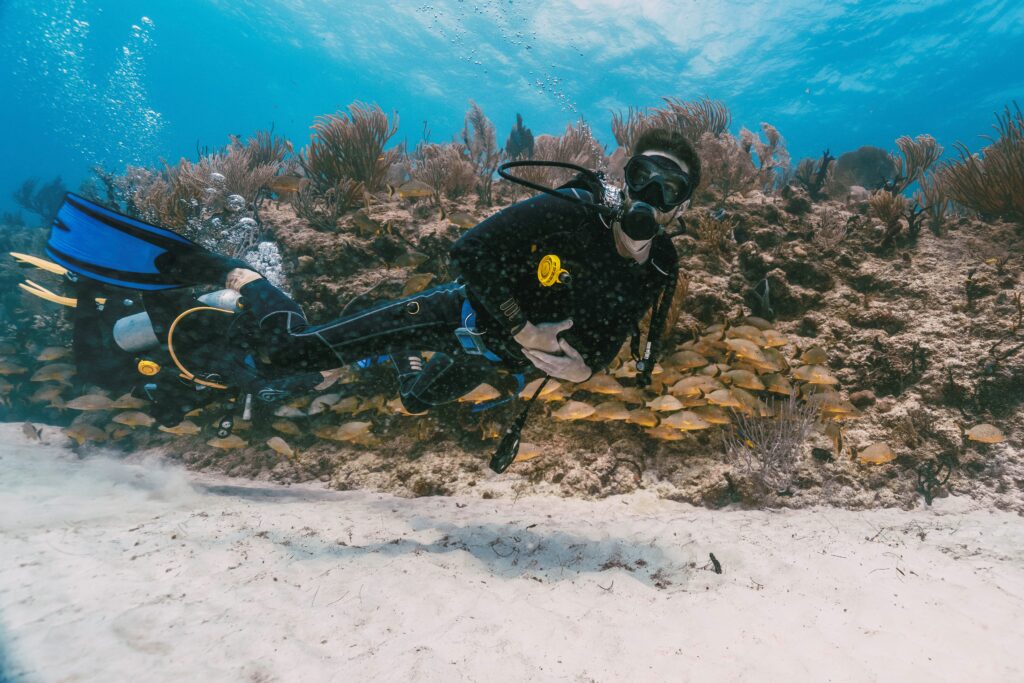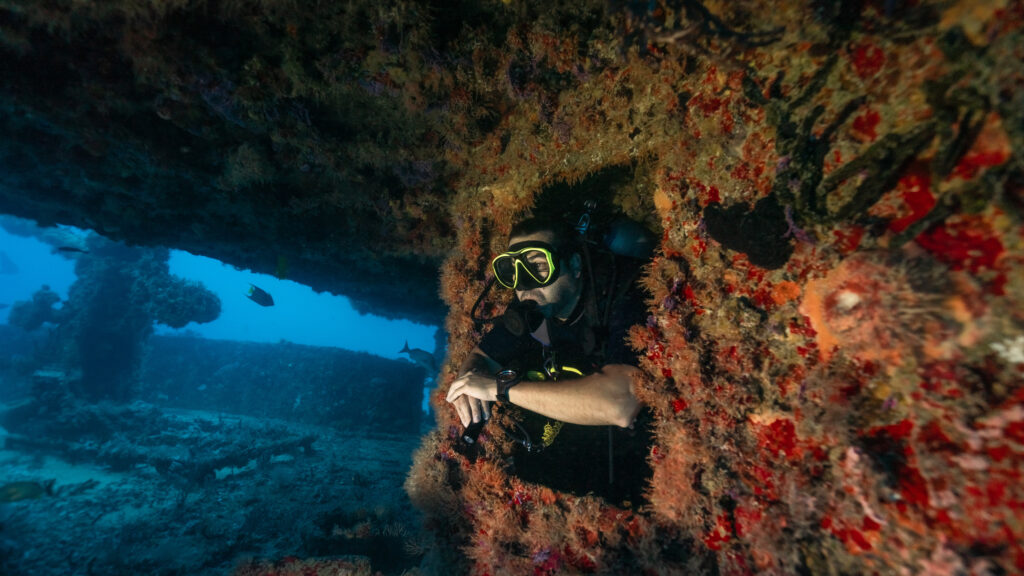What is a Scuba Diver?

What is a Scuba Diver? A scuba diver is a person who engages in the recreational or professional activity of swimming underwater using SCUBA equipment. The term “scuba” is an acronym for “self-contained underwater breathing apparatus,” which allows scuba divers to breathe comfortably beneath the water’s surface while exploring the aquatic world at their leisure. […]
What is Absolute Pressure in Scuba Diving Context?

Absolute pressure, a term frequently used in the field of scuba diving, refers to the total static pressure at a particular point. It is a vital concept that divers need to understand and appreciate to ensure safety during their underwater adventures. In technical terms, absolute pressure is the sum of the atmospheric pressure and the pressure due to any fluid column above the point of measurement. It is always measured relative to a perfect vacuum, which is devoid of all matter and hence bears a pressure of zero.
What is a Automatic Diluent Valve (ADV)?

The Automatic Diluent Valve (ADV) is a critical component in the configuration of modern rebreather systems used in scuba diving. This device automatically adds diluent gas to the breathing loop to maintain the correct volume and optimal gas mixture, ensuring the diver’s buoyancy and safety at varying depths. The importance of the ADV in facilitating longer, safer dives cannot be overstated, making it an essential study for divers and technicians alike.
What is Hypoxia when Scuba Diving?

Hypoxia, defined as a deficiency of oxygen in the body, is a significant concern for scuba divers, as it can impair vital bodily functions, reduce consciousness, and lead to life-threatening conditions. This medical issue becomes especially relevant in the context of scuba diving, where a diver’s environment and the unique breathing conditions can increase the likelihood of insufficient oxygen levels. Hypoxia is not always immediately apparent, but recognizing and understanding its causes, symptoms, and prevention strategies can help divers stay safe underwater.
What is Water Pressure when Diving?

Water pressure is a crucial concept in scuba diving, defined as the force per unit area exerted by the weight of water. The weight of the water column above a certain depth creates this pressure. This pressure is not just from the top down, but it is exerted equally from all directions. The deeper a diver descends, the greater the water pressure exerted on their body.
What is the Maximum Operating Depth?

Maximum Operating Depth (MOD) is a critical concept in the field of scuba diving. It refers to the deepest depth at which a particular gas mixture can be used safely without the diver experiencing oxygen toxicity. Understanding and adhering to the MOD is essential for ensuring diver safety and preventing potentially life-threatening conditions. MOD varies depending on the gas mixture being used and is influenced by the partial pressure of oxygen within the breathing gas. By comprehending the significance of MOD, divers can plan their underwater excursions more effectively and reduce the risks associated with diving to greater depths.
What is Mixed Gas?

Mixed gas, in the context of scuba diving, refers to breathing gases other than air, which are used to extend bottom time, reduce decompression obligations, and manage the risks associated with deep diving. These mixtures can include combinations of oxygen, nitrogen, helium, and other inert gases, tailored to specific diving conditions and depths. By using mixed gases, divers can safely reach greater depths and explore environments that would otherwise be inaccessible due to the limitations of breathing air alone.
What is Hyperventilation?

Hyperventilation refers to a state of rapid or deep breathing that exceeds the body’s need for oxygen. This condition leads to a significant decrease in carbon dioxide levels in the blood, causing various physiological effects. Understanding hyperventilation is crucial for scuba divers as it can profoundly impact their safety and overall experience underwater. Divers need to be aware of the causes, effects, and preventive measures related to hyperventilation to ensure safe and enjoyable diving experiences.
What is a Gas Fraction?

In the context of scuba diving, a gas fraction refers to the proportion of each gas component within a breathing gas mixture. Understanding gas fractions is crucial for divers to ensure safe and efficient breathing under water. The significance of gas fractions cannot be overstated, as they directly influence dive planning, physiological effects on the body, and overall safety. By grasping the fundamentals of gas fractions, divers can make informed decisions that enhance their underwater experience while minimizing risks.
What is Narcosis?

Narcosis, often referred to as “the rapture of the deep,” is a condition that affects scuba divers when they descend to certain depths underwater. It is a state of altered consciousness caused by the pressure of breathing gases at depth. Understanding narcosis is crucial for divers to ensure their safety and well-being while underwater. This condition can impact a diver’s mental and physical capabilities, leading to potentially dangerous situations if not recognized and managed properly. As such, it is a topic of significant importance in the field of scuba diving, both for recreational and professional divers.
